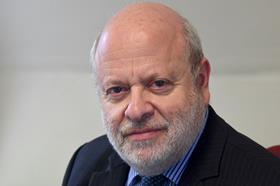With extreme hesitation, I enter contested territory: the impact of the Israel-Hamas war on the legal profession.

A sentiment one way or the other leads to powerful responses. So I say at the outset that none of what follows expresses an opinion on the war itself or the rightness and wrongness of any party – the Gazette is not the vehicle for that.
However, there have been developments relevant to the legal profession following the campus protests in the US.
First, thirteen federal judges, appointees of former president Trump, announced last week that they will not hire clerks who graduate from Columbia University or Columbia Law School. In their letter to the president of Columbia, they said:
‘Universities should also identify students who engage in such conduct so that future employers can avoid hiring them. If not, employers are forced to assume the risk that anyone they hire from Columbia may be one of these disruptive and hateful students.’
These are just 13 federal judges out of nearly 900 nationwide.
At the same time, the chair of the law firm Sullivan & Cromwell promised an ‘extremely vigilant’ review of students’ backgrounds for clues as to whether they participated in or created ‘a climate of harassment, intimidation and discrimination’ in their student days. This will include a ‘thorough review of the candidate’s online presence, school website (and) news reports’, citing antisemitic behaviour during pro-Palestinian campus protests.
Sullivan & Cromwell was one of the signatories to a letter sent last November by some big US law firms to the top law schools, which hinted at potential hiring consequences for students involved in pro-Palestine protests.
Even in October 2023, just days after the war broke out, it was reported that Davis Polk had rescinded employment offers made to three students whom the firm believed had led organisations at Harvard and Columbia that issued statements blaming Israel for the attack by Hamas on 7 October (although two of the three cases were being reconsidered). There were no individual signatures on the statements.
It was also reported at the time that a large number of law students to whom Davis Polk had promised employment — from Columbia, Harvard and other law schools — had reached out to say that they did not agree with the statements released by organisations of which they were part and which had blamed Israel for the 7 October killings. Many made clear that they had resigned from the organisations.
In its reporting, the New York Times asked: can an employer hold an employee or potential hire personally accountable for every action taken by an affinity group of which the individual is a member?
But that is not the only issue raised. There is also the question of whether actions committed as a student automatically make someone unsuitable either to be a lawyer or, of more relevance here, to be a lawyer at an elite law firm. Of course, it depends on what the student has done, with graver offences leading to potentially graver consequences.
But the histories of bars are littered with incidents of people who have committed very grave offences, such as murder, but who are nevertheless later admitted as lawyers because of important principles like redemption, reform of character, and the wider context in which the offence was committed.
In the case of these student protests, the main complaints have been (in no particular order, not taking account of every possible incident, and knowing that some or many protestors may have done none of these things): discriminatory behaviour, occupation of university premises, chanting of slogans, spoken support for other peoples’ crimes, and conduct which makes other students feel unsafe. Where the police or counter-protestors have intervened, there has also been violence.
In my view, blanket bans on students who have participated in the protests is not right. Each case should be considered on its merits. People, particularly young people, should be given a second chance, for whichever side they are protesting.
The history so far of this issue is of importance to us here because the protests have come to the UK. Pro-Palestinian encampments have spread to 15 of our universities, but so far without US-style violent confrontations. Others think that, violence or not, there is still cause for concern.
The war raises the temperature of all discussion around it. Of course, criminal offences committed by law students should have consequences. But not all protest actions should automatically exclude students from consideration for future employment, at least not without considering the circumstances.
And there is also something novel about the big law firms wielding their prestige and hiring power with the possible effect that it may cause some students to be so fearful for their futures that they are silenced even in lawful speech.
Jonathan Goldsmith is Law Society Council member for EU & International, chair of the Law Society’s Policy & Regulatory Affairs Committee and a member of its board. All views expressed are personal and are not made in his capacity as a Law Society Council member, nor on behalf of the Law Society






























